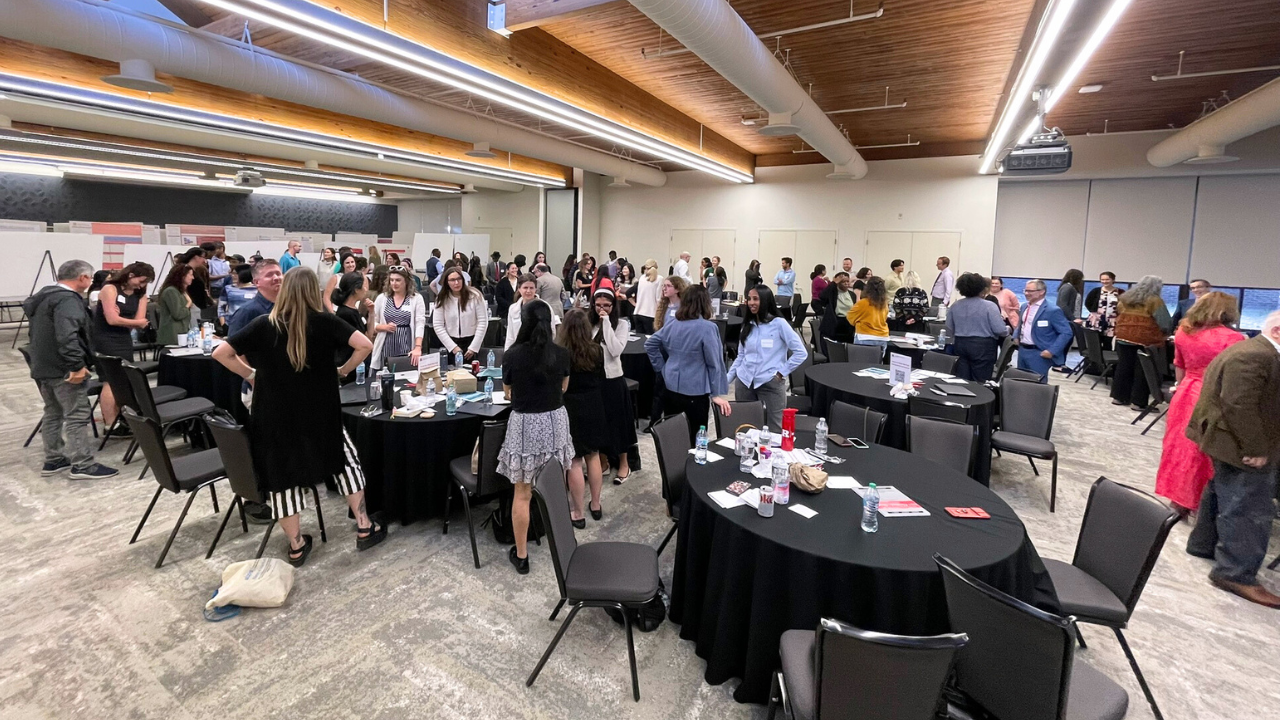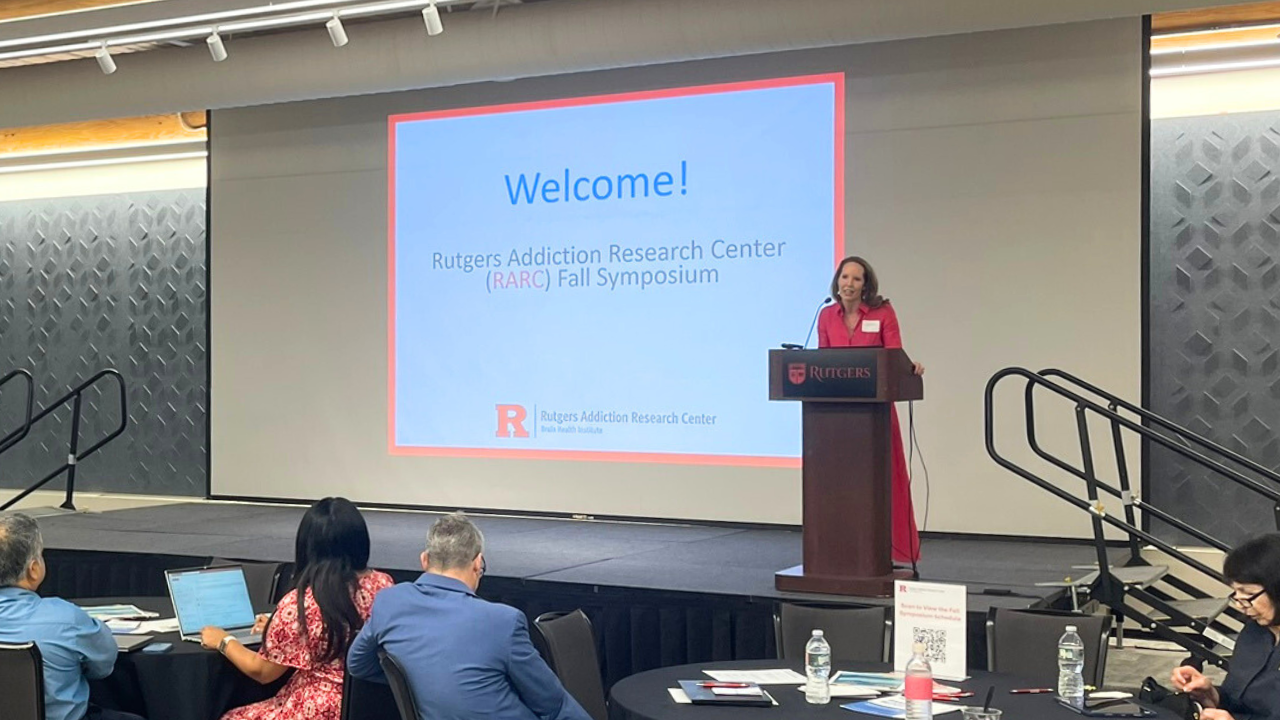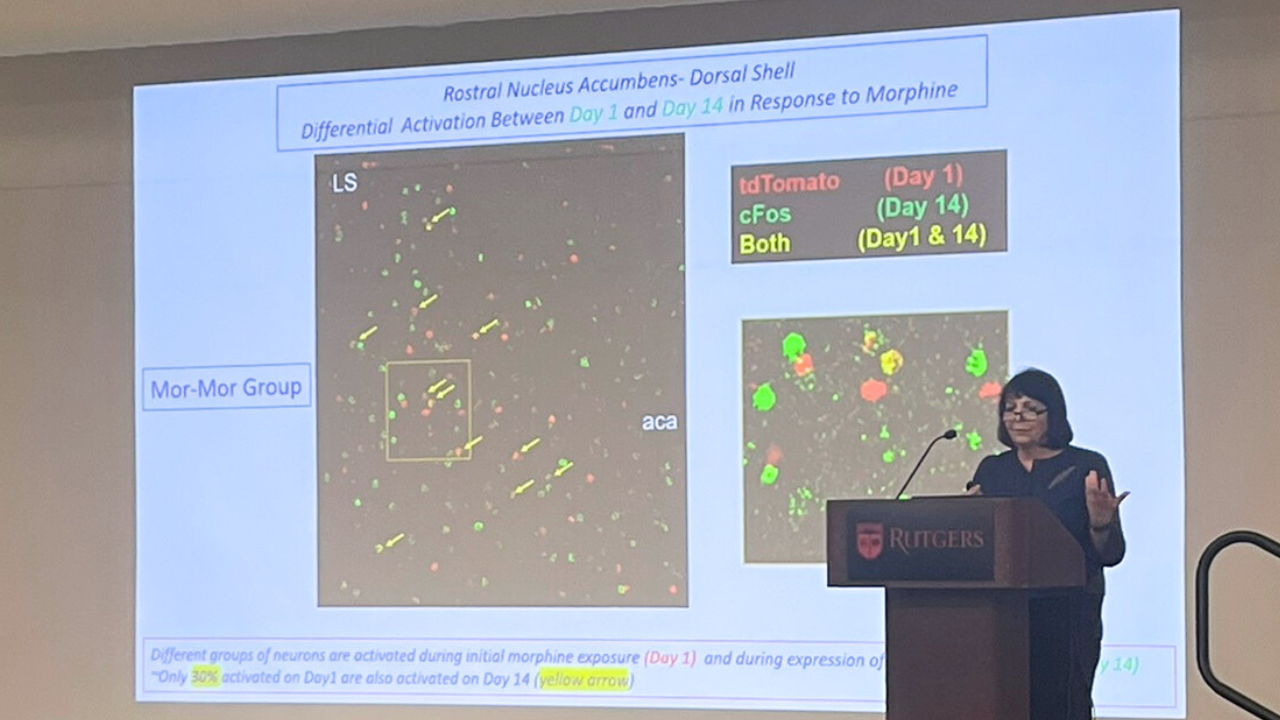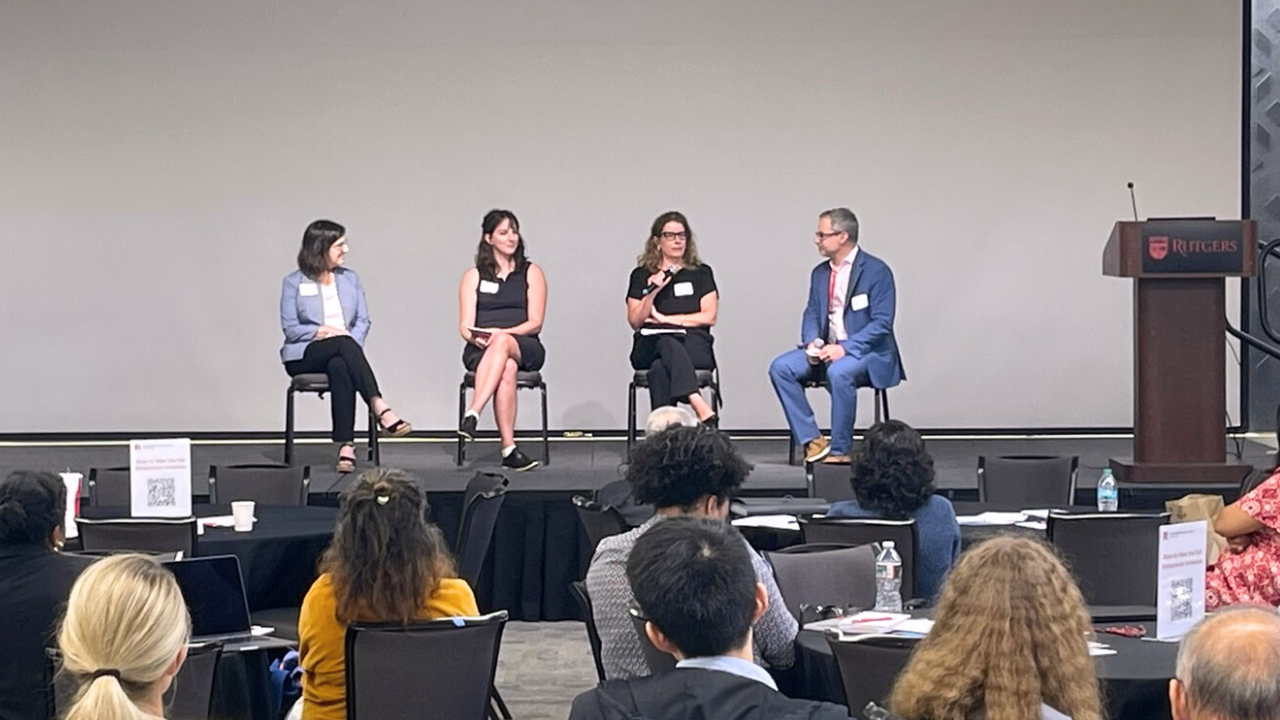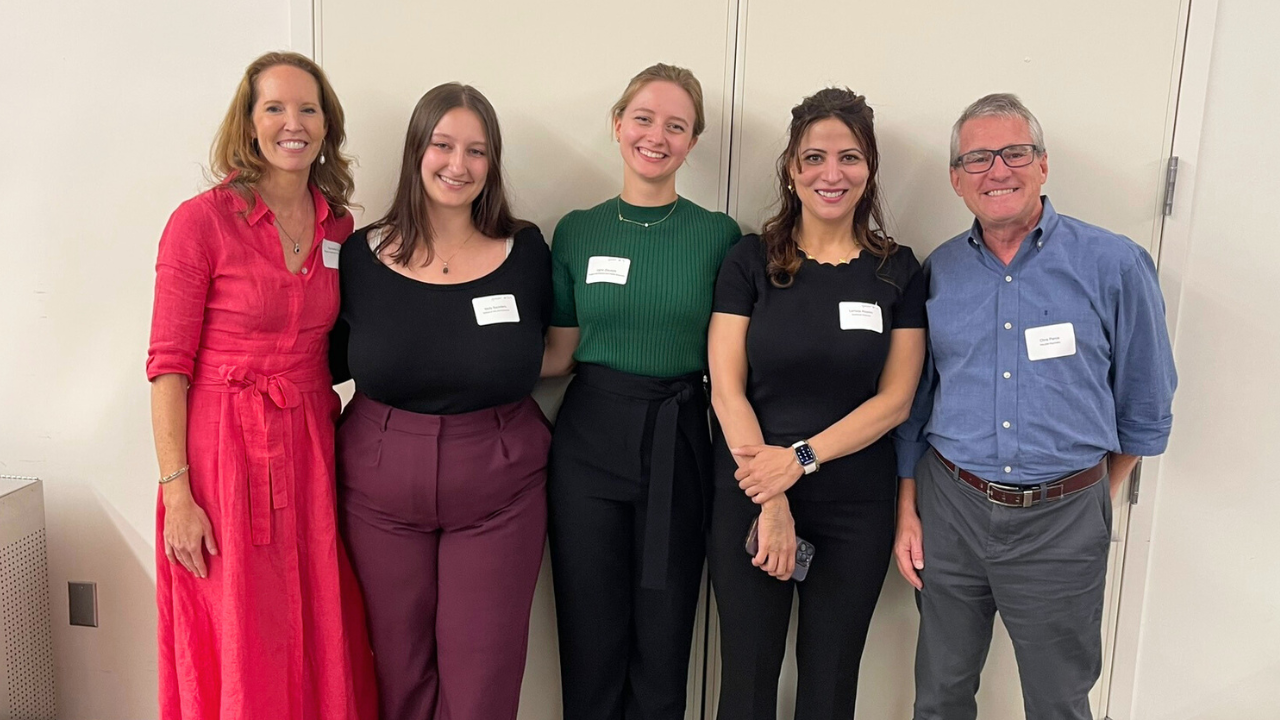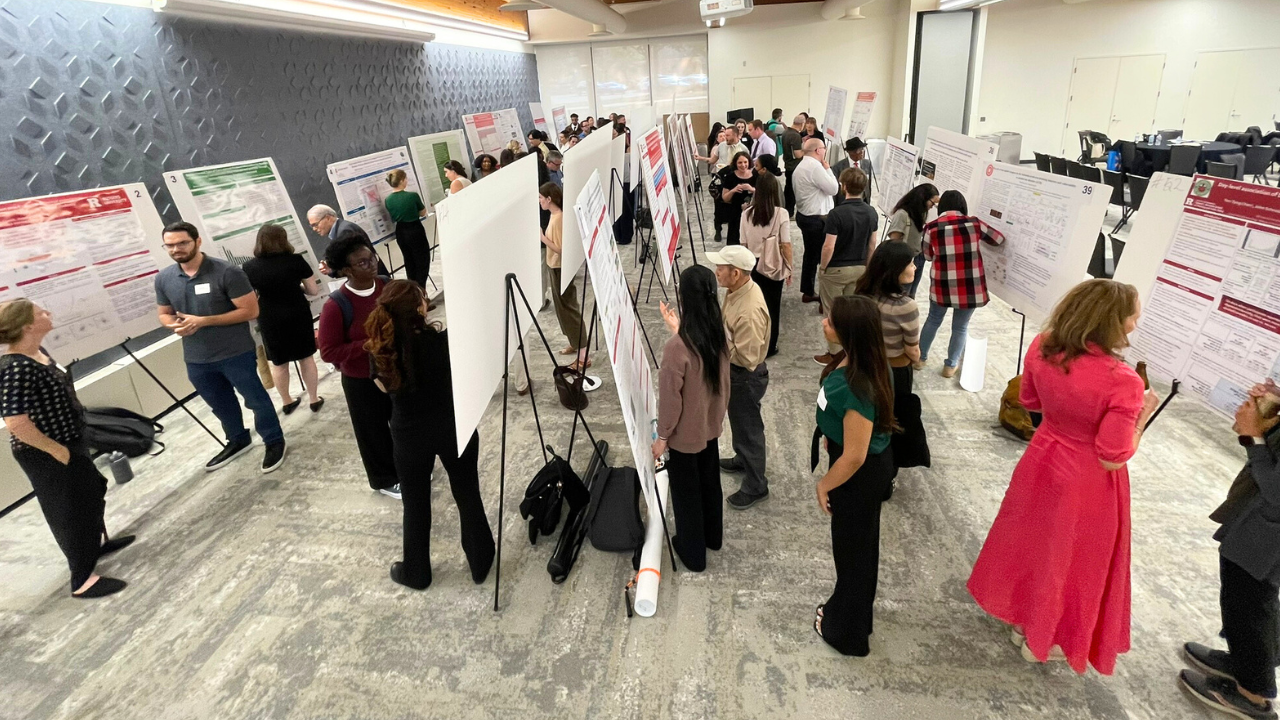Dr. Huda Akil’s Keynote Advances Addiction Research at RARC Fall Symposium

On September 5, 2025, the Rutgers Addiction Research Center (RARC), part of the Rutgers Brain Health Institute (BHI), hosted its Fall Symposium at the Busch Student Center in Piscataway, NJ. This event convened neuroscientists, clinicians, and early-career researchers to explore groundbreaking advancements in addiction science. The keynote address, delivered by Dr. Huda Akil, a National Medal of Science recipient, was titled “Searching for the Neurobiological and Genetic Basis of Temperament: Relevance to Addiction.” Drawing from her extensive research, Dr. Akil illuminated the biological and genetic underpinnings of addiction, reinforcing RARC and BHI’s mission to combat the opioid crisis through innovative neuroscience.
Decoding the Drivers of Addiction
Dr. Akil emphasized the scale of substance use disorders in the USA and globally, highlighting the need for strategies to understand not only the consequences of drugs but also the antecedents that lead individuals to drug seeking and can result in substance use disorders. Using an innovative tool for tracking changes in brain activity within the same animal and across time, she demonstrated that repeated exposure to opioids leads to massive reorganization across the brain, both at the broad network level and within specific reward circuitry and neuronal cell types. Her findings suggest potential therapies to reverse these neurological changes, addressing addiction at its core and aligning with RARC’s goal of developing transformative solutions through collaborative, cutting-edge research.

Temperament and Genetic Predispositions
Dr. Akil’s research focuses on two temperamental tendencies that predispose individuals to drug-seeking behaviors: a high propensity for sensation-seeking, linked to “externalizing psychiatric disorders,” and high reactivity to psychological stress, associated with “internalizing psychiatric disorders.” Her lab has developed two lines of selectively bred rats that map closely onto these human traits. Through these models, her team has discovered new genetic factors that affect brain function and enhance propensity for drug use. Many of these genes or gene pathways align with human findings related to drug abuse, providing opportunities for follow-up, validation, and drug or biomarker development. This work underscores the potential for targeted interventions tailored to individual temperaments.

Dr. Alicia Zumbusch, a Postdoctoral Associate in the Gary Aston-Jones Lab at BHI, praised the clarity and impact of Dr. Akil’s approach: “I have been a longtime admirer of Dr. Akil’s work and was excited to see a leading mind in the basic science end of addiction neuroscience advocating for a scalable and translational approach to rodent models of human behaviors. In particular, the data on high and low responders and subsequent genetic analysis were clear, concise and compelling. As an early career researcher, it is also really encouraging to see a woman in the field reach such great heights.” Her comments reflect the inspiration Dr. Akil’s work provides to emerging researchers and its relevance to the broader addiction research community.
Bridging Science and Clinical Impact
Dr. Danielle Dick, RARC Director at BHI, highlighted Dr. Akil’s ability to connect diverse audiences: “I have long admired Huda’s work and was honored to have her serve as the keynote speaker at this year’s RARC Fall Symposium. One of the things I was particularly impressed by during her talk was her ability to translate basic neuroscience findings in ways that are also engaging to human/clinical researchers. The RARC is a diverse group of researchers, and her presentation truly offered something for everyone.” This ability to bridge basic science and clinical applications underscores the symposium’s role as a platform for interdisciplinary collaboration.
Dr. Akil argued that such research is essential for understanding the causes of substance use and misuse, required for devising novel treatments tailored to subsets of individuals, their temperament, and triggers, and a critical step in developing programs for preventing substance abuse and reversing the opioid and substance use epidemic.

A Vision for Change
Dr. Akil’s keynote galvanized attendees, reinforcing RARC and BHI’s leadership in addiction research. Her vision for translating neurobiological and genetic insights into personalized treatments offers hope for addressing the opioid epidemic. The symposium marked a pivotal moment in advancing neuroscience for societal impact, showcasing the power of collaborative research to tackle public health challenges.
To learn about the transformative work in addiction research, visit the Rutgers Brain Health Institute or explore RARC’s initiatives
Support Groundbreaking Addiction Research at Rutgers BHI
Help bring pioneering voices like Dr. Akil’s to Rutgers to fuel the Rutgers Brain Health Institute’s mission to explore, translate, and apply science that changes lives. Your support enables us to bring world-renowned neuroscience and brain health researchers to speak at Rutgers.
